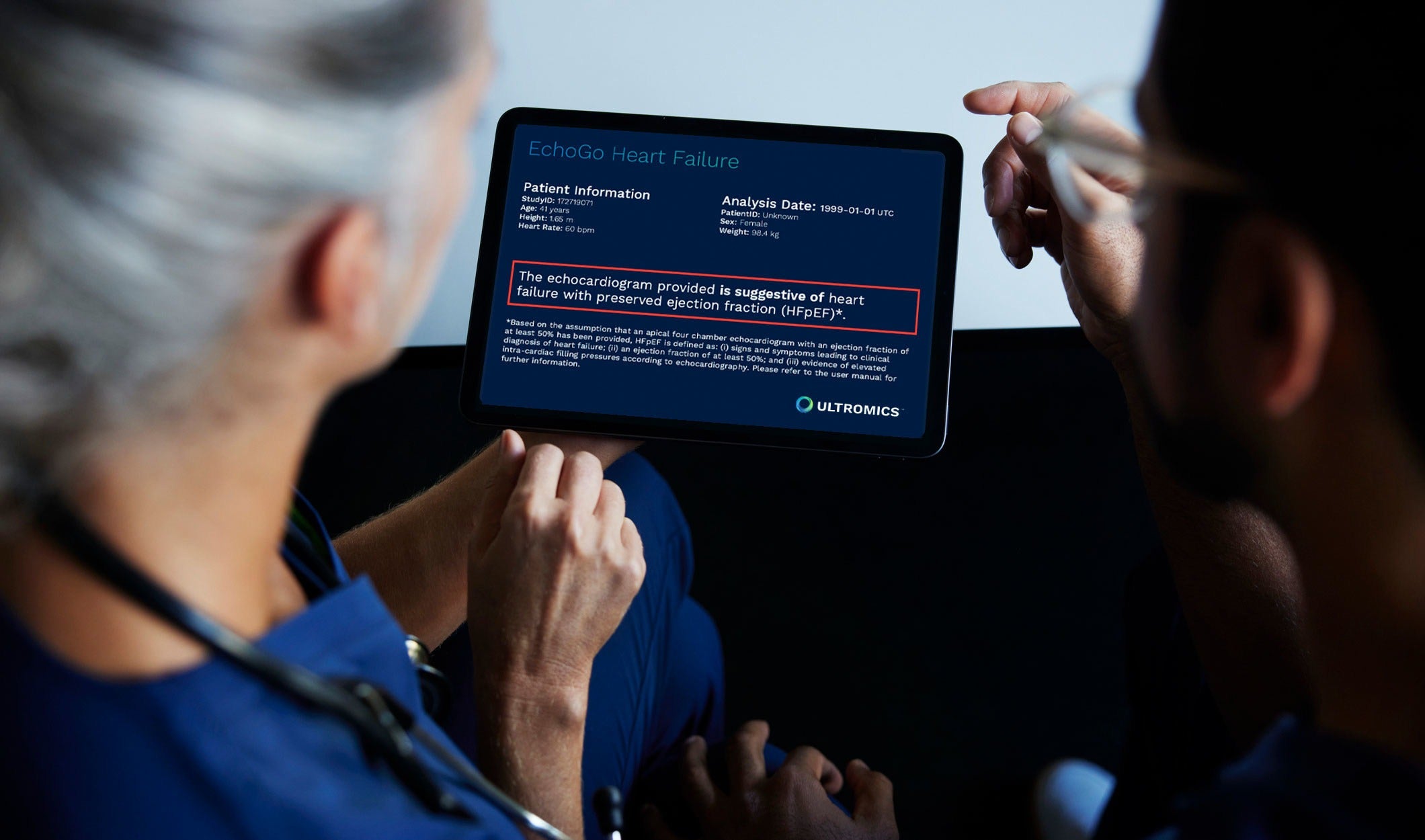
UK-based Ultromics has received US Food and Drug Administration (FDA) approval for its echocardiography solution, EchoGo Heart Failure, to detect a type of heart failure.
The EchoGo Heart Failure leverages artificial intelligence (AI) to accurately detect heart failure with preserved ejection fraction (HFpEF) from a single echocardiogram image.
Ultromics claims that its EchoGo Heart Failure has shown 90% accuracy in detecting HFpEF, 87.8% sensitivity and 83% specificity in independent testing.
In addition, the independent testing data showed that its echocardiography solution correctly identified 68% more HFpEF patients compared to clinical algorithms.
Ultromics CEO and founder Ross Upton said: “We are delighted that the FDA has recognised EchoGo Heart Failure as a breakthrough device and has cleared the technology to provide reliable detection of HFpEF.
“The technology improves the accuracy of HFpEF detection, enabling more patients to receive treatment which will reduce the significant burden on patients and healthcare systems alike.
“Although compelling progress has been made in the diagnosis and treatment of many forms of heart disease, heart failure hospitalisations and mortality continue to rise globally.”
HFpEF is a type of heart failure caused by increased pressure within the chambers of the heart and is often associated with co-morbidities.
The ejection fraction or the volume of blood ejected from the left ventricle remains in normal ranges in this condition, making it difficult to detect using traditional diagnostic methods.
Its symptoms, including shortness of breath, chest discomfort, and debilitating fatigue, are said to impact a person’s quality of life and have no effective treatment.
The current treatment approaches are time-consuming and often return inconclusive diastolic function assessment, and require invasive testing.
Ultromics said that its EchoGo Heart Failure is the first HFpEF detection algorithm that supports diagnosis and patient selection for therapy.
The accurate detection allows patients to benefit from new therapies, such as SGLT2is, which significantly reduces both hospitalisations and serious adverse events.






